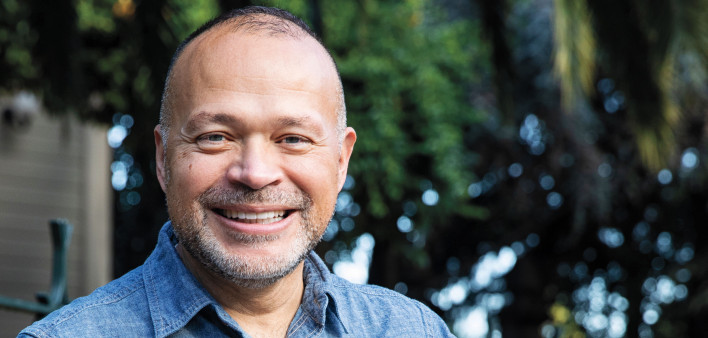During the early days of the epidemic, when George Ayala was a clinical psychologist working with youth, HIV was a frequent topic of discussion in his conversations with young people.
“HIV was also just impacting my own life,” says Ayala, founding executive director of the Oakland, California–based MPact Global Action for Gay Men’s Health and Rights. “I had family members passing away, lovers with HIV, and past lovers who had passed away. It was just an issue that I couldn’t really turn away from.”
In 1995, Ayala became deputy director of the Hispanic AIDS Forum, where he oversaw case management and HIV testing and prevention services, among other duties.
He has held HIV-related positions at the University of California, San Francisco, at the Los Angeles County Department of Health Services and at the nonprofit group AIDS Project of Los Angeles (now APLA Health).
In 2009, he assumed his current role at MPact, which requires him to conduct policy analyses and advise policymakers on issues relating to HIV and men who have sex with men (MSM) and other marginalized communities around the world.
“We don’t have boots on the ground,” Ayala says. “In lieu of that, we support community-based organizations at the country level to carry forward the work.”
One of MPact’s current initiatives is the Global Men’s Health and Rights Survey 2019, which is available in 10 languages, including English, Spanish, French, Chinese and Arabic.
“We use the data to raise awareness and to inform our own advocacy agenda as an organization,” Ayala says. “Then, we share the data with activists around the world so they come prepared to lobby their own governments to make the case for why delivering services that are sensitive to gay and bisexual men is important.”
MPact is one of the organizers of the HIV2020 Conference in Mexico City. The conference was organized as an alternative to the International AIDS Society’s AIDS 2020 conference. AIDS 2020 is taking place in San Francisco and Oakland despite opposition by advocates who believe it should not be held on U.S. soil because of this country’s discriminatory immigration and travel policies and current human rights conditions.
“We thought it was a wrong decision,” Ayala explains. “We are Bay Area–based, so it’s hard for us to stand in opposition to having the conference in our hometown. But we think it’s the right thing to do.”
MPact also created the “#AnalAboutMyHealth” campaign, which Ayala describes as “sex positive and affirming of gay and bisexual men and our bodies.” Then, there is Fijate Bien (“Pay Close Attention”), a program designed to expand access to HIV prevention and treatment services for Latino MSM in the United States.
“We want to make sure that gay and bisexual men have choices and are living in worlds that are stigma-free,” Ayala says.







Comments
Comments